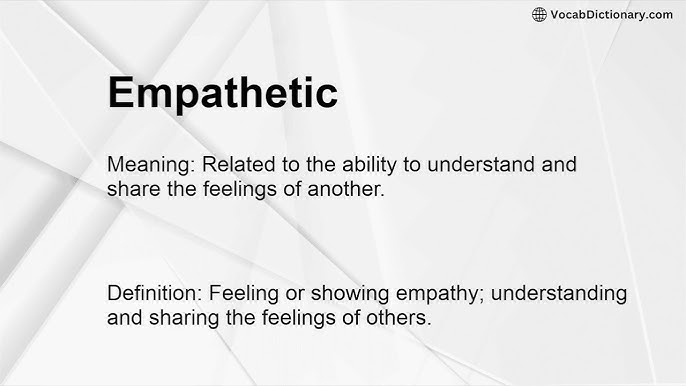Practical Ethics: Exploring Common and Individual Morality
Practical ethics delves into the intersection of philosophy and real-world decision-making, examining how moral principles can be applied to everyday situations. At its core, practical ethics seeks to navigate the complexities of our common and individual morality, guiding us in making ethical choices that align with our values.
One of the key aspects of practical ethics is its focus on the ethical dilemmas that individuals face in their personal and professional lives. These dilemmas often arise when there is a conflict between different moral principles or when the right course of action is not immediately clear. By engaging with practical ethics, individuals can develop a framework for ethical decision-making that takes into account their values, beliefs, and responsibilities.
Moreover, practical ethics also examines the broader societal implications of our moral choices. It considers how our individual actions impact others and how we can contribute to creating a more just and compassionate society. By exploring issues such as justice, fairness, and responsibility, practical ethics encourages us to reflect on the ethical dimensions of social issues and collective decision-making.
Ultimately, practical ethics serves as a bridge between abstract ethical theories and concrete moral challenges. It invites us to think critically about the values that guide our lives and to consider how we can uphold these values in a world full of complexities and uncertainties. By engaging with practical ethics, we not only deepen our understanding of morality but also cultivate virtues such as empathy, integrity, and compassion that are essential for living a meaningful and ethical life.
9 Practical Ethics Tips for Navigating Common and Individual Morality
- Consider the consequences of actions on all affected parties.
- Strive for fairness and justice in decision-making.
- Respect individual autonomy and freedom of choice.
- Balance personal interests with the common good.
- Reflect on how cultural norms influence moral views.
- Be open to revising beliefs when presented with new evidence.
- Engage in empathetic understanding of diverse perspectives.
- Prioritise honesty and transparency in communication.
- Foster a sense of responsibility towards future generations.
Consider the consequences of actions on all affected parties.
When exploring practical ethics and examining our common and individual morality, it is crucial to consider the consequences of our actions on all affected parties. By taking into account how our decisions may impact others, we can strive to make ethical choices that promote the well-being and fairness of everyone involved. This principle encourages us to think beyond our immediate interests and consider the broader implications of our actions, fostering a more inclusive and morally responsible approach to decision-making.
Strive for fairness and justice in decision-making.
In the realm of practical ethics, it is paramount to strive for fairness and justice in decision-making. By upholding principles of fairness and justice, individuals can ensure that their choices are guided by a sense of equality and ethical responsibility towards others. This commitment to fairness not only fosters trust and respect within communities but also contributes to creating a more equitable and harmonious society where each individual’s rights and dignity are upheld with integrity.
Respect individual autonomy and freedom of choice.
Respecting individual autonomy and freedom of choice is a fundamental principle in practical ethics that acknowledges the importance of individuals’ ability to make decisions based on their own values and beliefs. By upholding this principle, we recognise and honour the uniqueness of each person’s perspective and empower them to act in accordance with their own moral compass. This commitment to respecting autonomy not only fosters a culture of mutual respect and understanding but also reinforces the idea that ethical decision-making should be grounded in the values of self-determination and personal agency.
Balance personal interests with the common good.
In the realm of practical ethics, a fundamental principle to consider is the need to balance personal interests with the common good. This tip underscores the importance of not only reflecting on our individual desires and motivations but also taking into account how our actions impact the well-being of others and society as a whole. By striving to strike a balance between pursuing our own interests and contributing to the greater good, we can navigate ethical dilemmas with thoughtfulness and integrity, fostering a harmonious coexistence that benefits both ourselves and the community at large.
Reflect on how cultural norms influence moral views.
Reflecting on how cultural norms influence moral views is a crucial aspect of practical ethics. Our upbringing, societal values, and cultural background play a significant role in shaping our understanding of right and wrong. By examining the impact of cultural norms on our moral perspectives, we can gain insight into the diversity of ethical beliefs and practices across different societies. This reflection enables us to appreciate the complexity of moral reasoning and encourages us to approach ethical dilemmas with a more nuanced and inclusive perspective, fostering greater understanding and empathy towards others with differing viewpoints.
Be open to revising beliefs when presented with new evidence.
In the realm of practical ethics, a fundamental principle to uphold is the willingness to reconsider and revise our beliefs in light of new evidence. This commitment to intellectual humility and openness allows us to engage with differing perspectives, challenge our preconceptions, and evolve our moral reasoning. By embracing this approach, we not only demonstrate a genuine commitment to ethical reflection but also foster a deeper understanding of our common and individual morality.
Engage in empathetic understanding of diverse perspectives.
Engaging in empathetic understanding of diverse perspectives is a crucial aspect of practical ethics as it allows individuals to broaden their moral horizons and appreciate the complexities of different viewpoints. By cultivating empathy towards others, we can better navigate ethical dilemmas and make informed decisions that take into account the diverse values and experiences present in society. This practice not only enhances our ability to empathise with others but also fosters a more inclusive and compassionate approach to ethical decision-making, ultimately contributing to a more harmonious and respectful coexistence within our communities.
Prioritise honesty and transparency in communication.
In the realm of practical ethics, a fundamental tip is to prioritise honesty and transparency in communication. By upholding these values, individuals can cultivate trust, foster meaningful relationships, and uphold the principles of integrity and accountability. Embracing honesty in communication not only aligns with ethical norms but also contributes to creating a more open and respectful environment where conflicts can be resolved constructively and decisions can be made with clarity and fairness.
Foster a sense of responsibility towards future generations.
Fostering a sense of responsibility towards future generations is a crucial aspect of practical ethics that examines our common and individual morality. By considering the impact of our present actions on the well-being of those who will come after us, we are reminded of the interconnectedness of all human beings across time. This ethical principle challenges us to make decisions that not only benefit us in the short term but also contribute to creating a sustainable and equitable world for future generations to thrive in. Embracing this sense of responsibility towards the future can guide us in making choices that prioritise long-term collective well-being over immediate gratification, promoting a more ethical and conscientious approach to decision-making.


